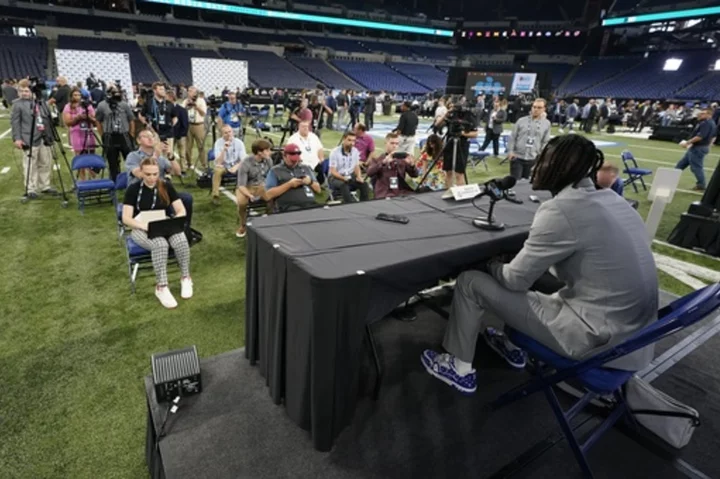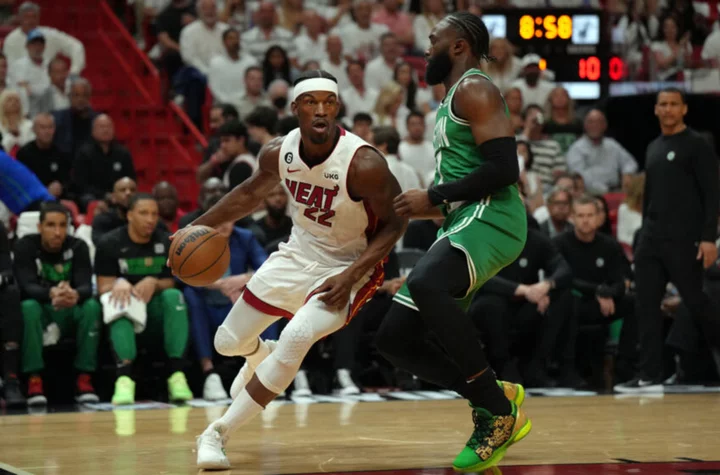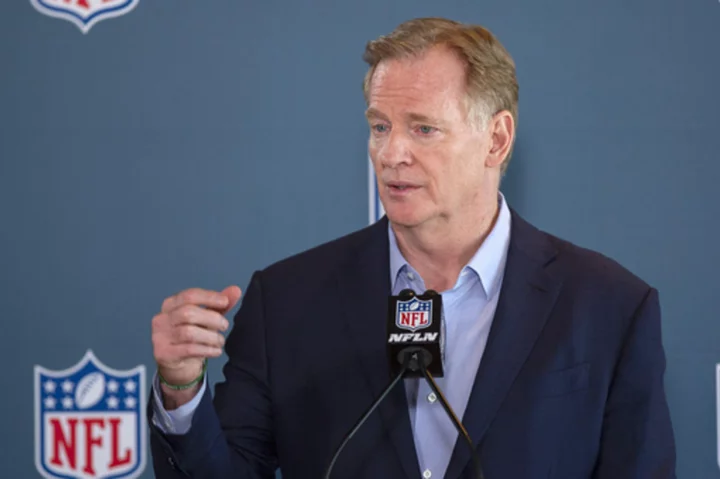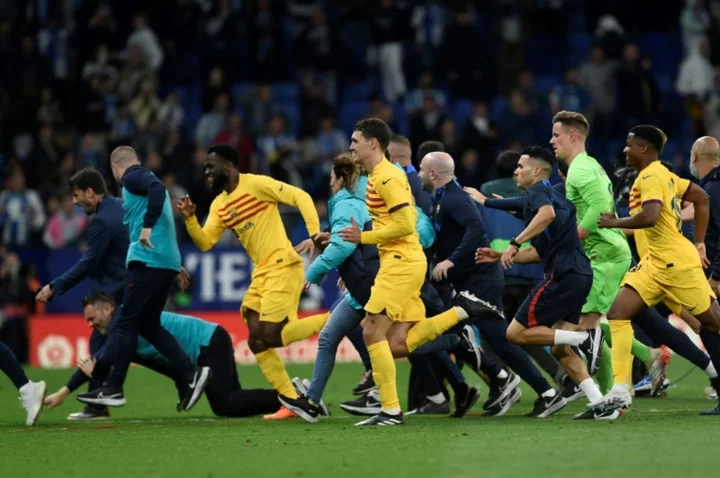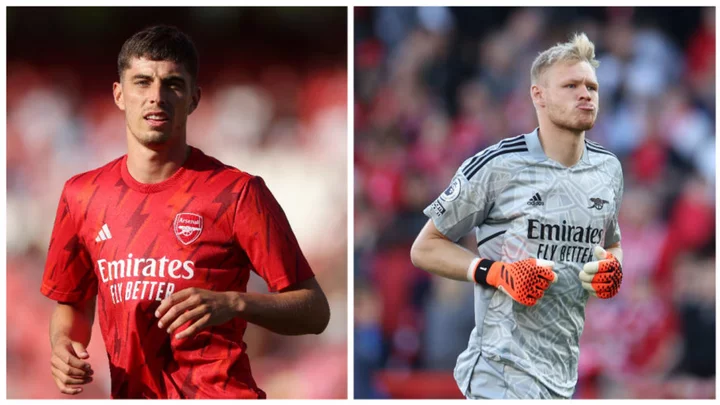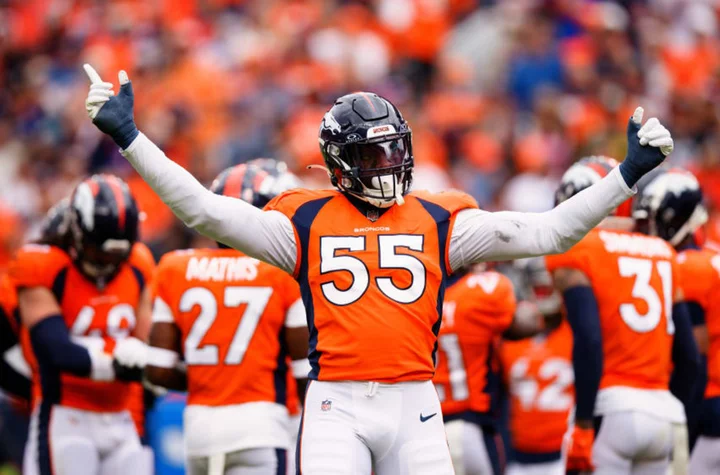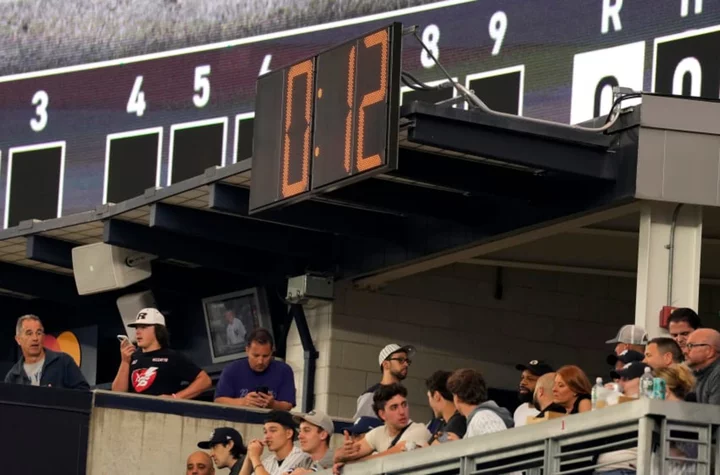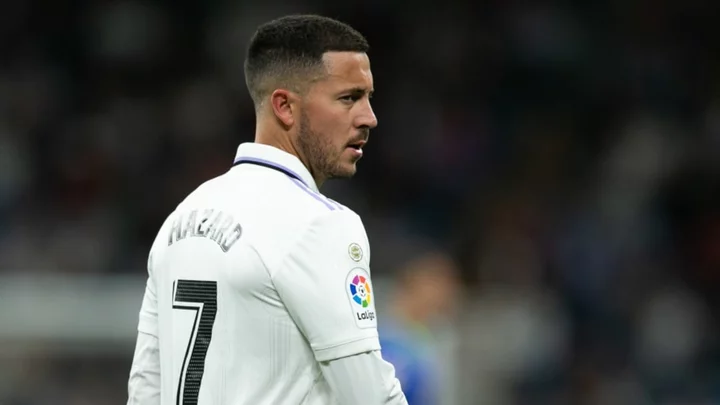INDIANAPOLIS (AP) — Marvin Harrison Jr. dressed appropriately for Big Ten media days as he stepped out under the bright lights inside Lucas Oil Stadium, where his father shined as a wide receiver with the Indianapolis Colts on his way to the Hall of Fame.
The Ohio State star’s tie and sneakers were blue — Colts’ royal blue, in fact.
“Yeah, a tribute, obviously my dad played for the Colts,” Harrison said Wednesday. “You could say it was a tribute to him and also style as well.”
Harrison, 20, was too young to remember seeing his father play in the stadium before his retirement after the 2008 season. But he recalled being in the building when the elder Harrison was inducted into the Colts Ring of Honor in 2011.
“I was just a kid at the time, being amazed at how big the stadium is, the bright lights and things like that," he said. "I never dreamed of me maybe having an opportunity to get to play in a Big Ten championship game, being in this stadium for Big Ten media days.”
Harrison emerged during his sophomore season as a unanimous All-American with 77 receptions for 1,263 yards and 14 touchdowns last year. The Buckeyes, however, failed for a second consecutive year to earn a trip to the staidum for the Big Ten title game. The next one is Dec. 2 and it is on Harrison's mind.
“When I came to Ohio State, you know the Big Ten Championship is in Indy,” he said. “That’s kind of the one goal I’ve had my whole college career and I haven’t got there yet.”
Harrison enters his junior season as one of college football’s best talents, a possible Heisman Trophy candidate as well as a potential top NFL draft pick. Although he will likely follow his father’s path to the NFL, the Harrisons are dissimilar in size; the father was generously listed at 6 feet tall, the son is 6-4. If they have anything in common, it’s that they tend to be quiet and prefer to lead by example.
To this day, the son says he’s learning about the game from his father. He laughed when asked if he ever teaches his father anything.
“It’s hard to teach a Hall of Famer anything that he doesn’t already know,” he said.
IOWA GAMBLING
Iowa announced in early May that multiple football players as well as athletes in other sports are being investigated for alleged gambling violations, Iowa coach Kirk Ferentz said the NCAA needs to rethink the fairness of punishments and focus on a better education process.
“Our world has changed dramatically,” Ferentz said. “I’m hopeful this is an opportunity or the NCAA to consider two things: What punishments might be that are fair and relevant to the world we’re living in right now, and probably the bigger thing, there’s an opportunity right now for a lot better education process.”
The NCAA recently eased gambling penalties.
“You just try to be as thorough as you can, try to have a culture as strong as possible,” he said, “but the gambling thing has been a great learning experience for me because I was kind of oblivious to it. I don’t gamble. I played cards in college, I liked it too much, and I was smart enough to know I’m not going to do that as I became an adult.
“It’s everywhere, right? When I was a kid, it was cigarette commercials. Now it’s gambling commercials. I think we just need to reshape our thinking about what’s fair and also use this as a real educational opportunity just to make sure players understand that there might be some downside to this stuff, too. It’s coming at ’em all the time, as I understand it.”
COMMISSIONER HOPEFUL CONGRESS IMPROVES NIL
Big Ten Commissioner Tony Petitti has been on the job for about 100 days, enough time to have extensive talks about name, image and likeness compensation for athletes. That includes chats with Congress.
“It is important to say that much of what is happening now under the guise of NIL is not true NIL but rather a move to a pay-for-play system that is driving recruitment and the transfer portal,” he said. “This system operates away from and without institutional control, nor does it comply with Title IX.
“Recently I had the opportunity to travel to Washington, D.C., and meet with members of Congress to discuss a fair and true NIL framework and discuss other issues facing student-athletes and college athletics.”
Petitti said he was encouraged by how Congress members and staffers were “engaged” and that there’s “real momentum for bipartisan legislation that benefits student-athletes, protects the academic athletic model, and recognizes that a national competitive landscape needs national rules that can be enforced.”
Multiple proposals have been floated in Congress over the past two years, including at least one this week.
___
AP college football: https://apnews.com/hub/college-football and https://twitter.com/ap_top25

